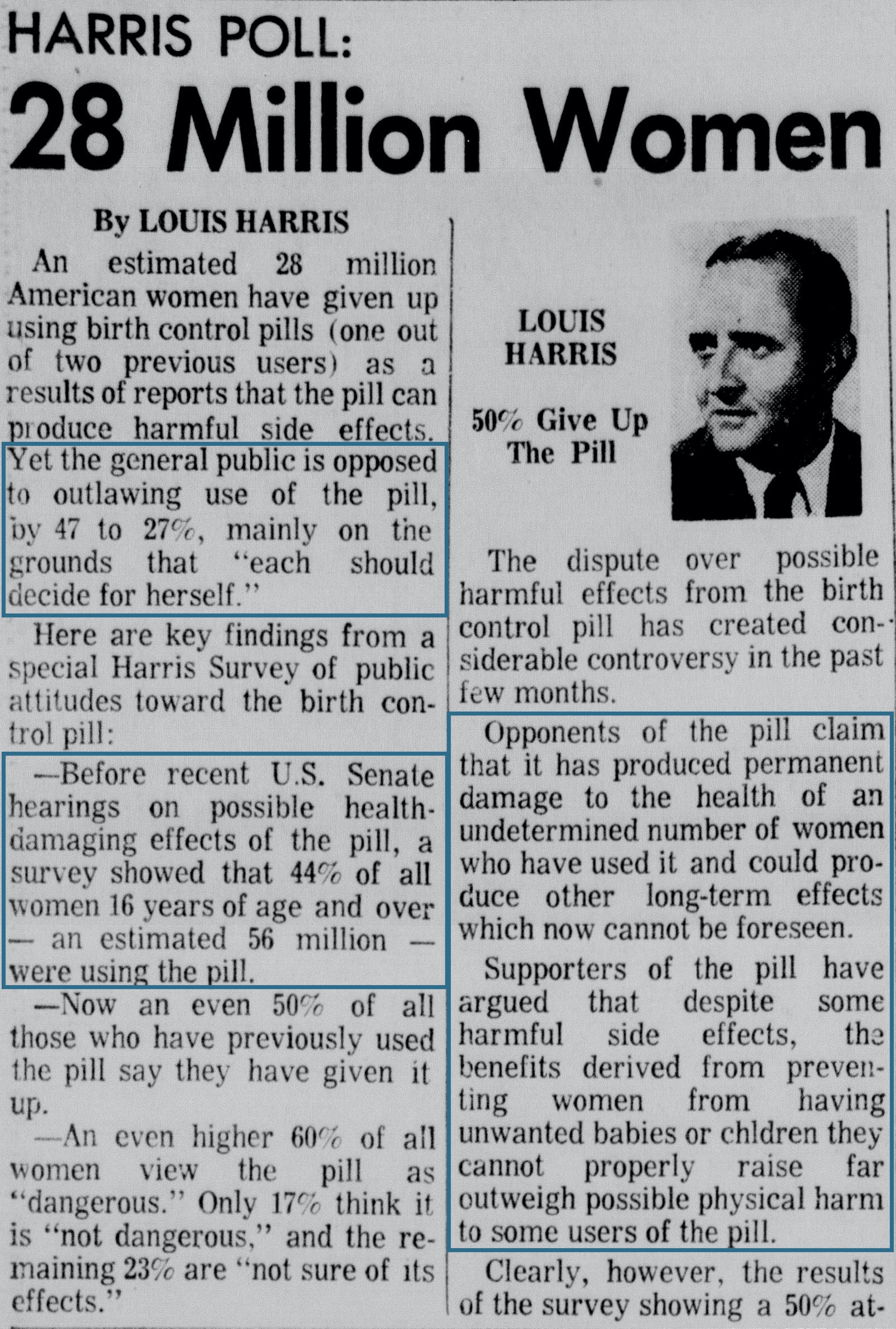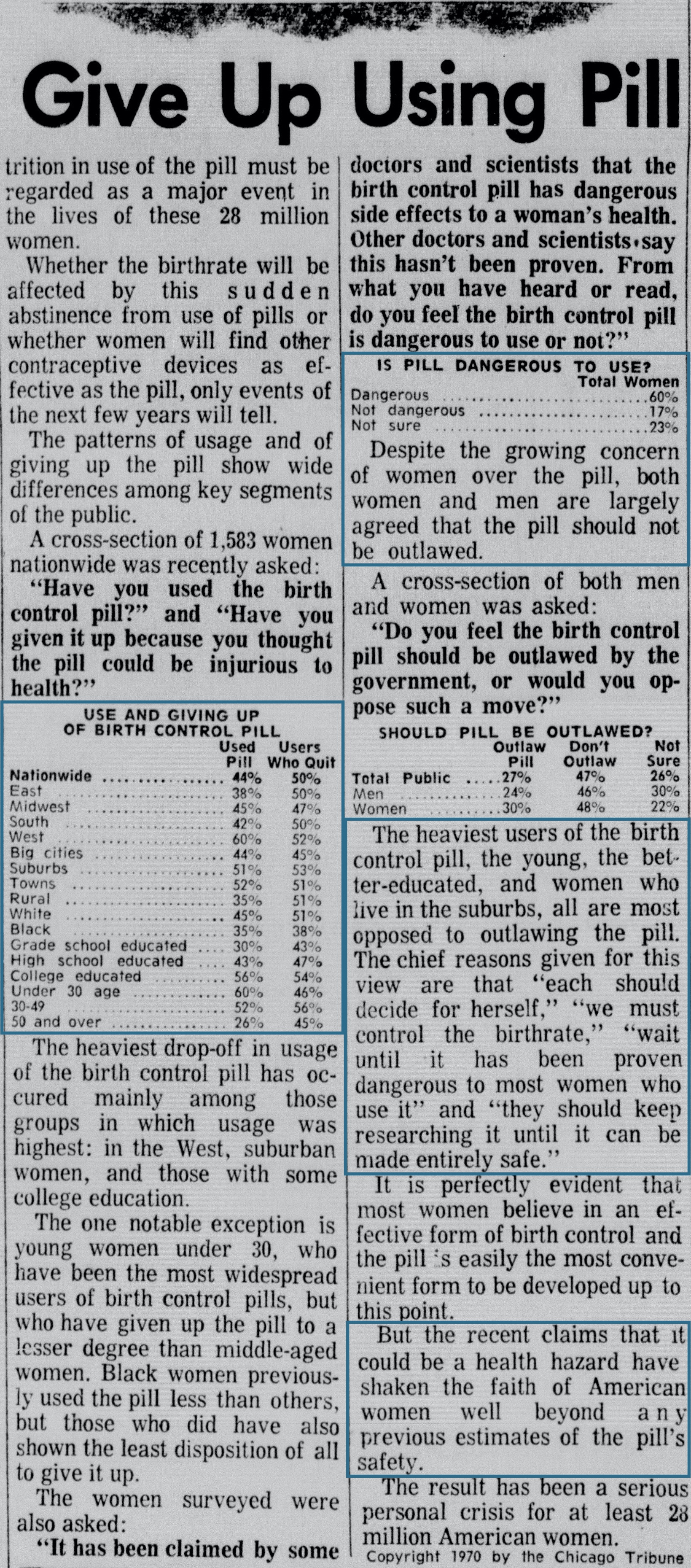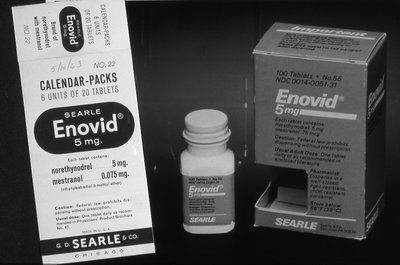
Scientific Barriers
In response to concerns about women’s use of hormonal medication as a contraceptive, researchers and supporters of the Pill asserted that it would prevent overpopulation and excessive childbearing, in turn solving Third World poverty.


"Harris Poll: 28 Million Women Give Up Using Pill" by Louis Harris. Lincoln Star, 1970.
In the early 1960s, medical studies linked the Pill to numerous blood clot problems and fatalities among women. Considering its potential carcinogenic risks and affiliation with thromboembolism, physicians and researchers debated whether the Pill should be taken off the market.
"The Wright committee found insufficient statistical data to permit an evaluation of the overall relation between Enovid and thromboembolism, but it was able to analyze the relation between use of Enovid and deaths resulting from thromboembolic conditions. The committee [...] found that death rates from thromboembolism appeared to be significantly higher for users than for nonusers of Enovid above the age of 35."
- Elinor Langer, "Enovid: Contraceptive Pill and Recent FDA Report Clearing It Stir Continued Medical Dispute." 1963.

G.D. Searle & Co. Pharmacia Corporation, Courtesy of PBS.
Excerpt from La Operación, 1982. Courtesy of The Center for Puerto Rican Studies.
Katharine McCormick funded significant portions of the hormonal contraceptive field trials in Puerto Rico. The ethics of these trials were questioned after it was revealed that participants experienced many of the aforementioned adverse health effects.